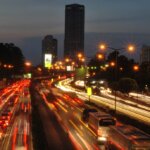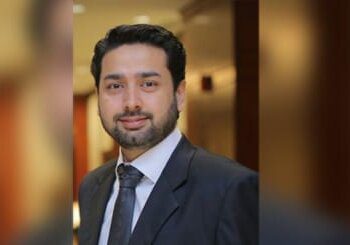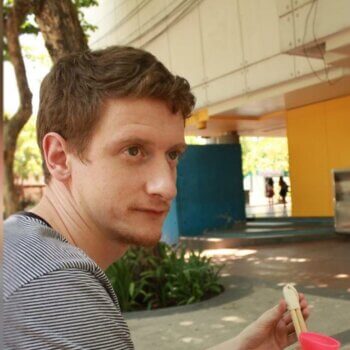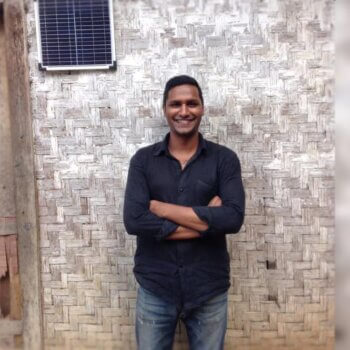Dato’ Hj Harris Hj Annuar Tan, Chief Executive Officer of Asian Supply Base (ASB) demonstrates an excellent entrepreneurial spirit to lead the Company in a positive direction by proper planning, adapting to change in a rapidly changing business environment and understanding the Company’s strengths and weaknesses. He is an example of a CEO best known for his extensive experience in the logistic hub development across the Oil and Gas (O&G) region.
Dato’ Hj Harris was born in Labuan Federal Territory (Labuan FT), Malaysia on 22nd of September 1960. He was fascinated by the affairs of the business world since the early years of his primary and secondary education in Labuan FT and in the Capital City of Sabah, Kota Kinabalu. Hence, in 1980, Dato’ Hj Harris graduated with a Bachelor of Science in Management from the University of Wisconsin, United States. “I was mentored by lecturers who often shared their leadership experiences in class. Their stories inspired me and convinced me that it’s leadership strategy that matters to the successful entrepreneur,” he says.
Dato’ Hj Harris started his career as assistant secretary in Labuan Municipal council. He then served as a manager in a Japanese company, Itochu Corporation, from 1991 to 1995. The stint with Itochu Corporation helped him to develop skills in entrepreneurship including the skills in coordinating with other relative support teams in the project and reporting to the global operations and senior management in Japan.
Dato’ Hj Harris started his career in ASB since 1995 and has vast experience in the logistic service towards O&G activities in the exploration, development and production areas. His strong leadership skills, high performing ability, and hard work certainly did not go unnoticed by the Government, which is the ultimate shareholder of ASB. He was later appointed as the Chairman of Yayasan Sabah Shipping Sdn Bhd to lead the Group to greater heights in the O&G Industry, bringing with him his wealth of experience to add-value, as Chairman/Director, to several other companies (Just to name a few: SOGIP, Petrosab Logistik, Petrosab Petroleum Engineering).
ASB was founded in 1984. It is wholly owned by the State Government of Sabah via Sabah Energy Corporation Sdn Bhd (SEC). At the outset it was only designed and operated as a supply base to support shallow-water drilling operations. During the early years, Dato’ Hj Harris could have become depressed and paralysed by unfortunate circumstances he faced especially during the economy downturn. Yet, he looked at them as an opportunity to learn and to gain experience. He is inclined to see an opportunity in every adversity, and constantly drives the Company to the next level with steady growth in revenue. He creates an open environment by being consistently open to the ideas to others. That way synergy is always achieved in the pooling of ideas and strategy-formulation.
“There’s no reason to wait for the perfect time to start a project. Start working on it today,” he says. Given the chance to develop Malaysian capabilities and to maximise Sabahan involvement in the overall O&G industry, several projects – such as first Liquid Mud Plant (2000) and Jetty Expansion (2002 & 2006) including establishing ASB Maritime Resources – were ensured the Company’s future is secured. In 2010, what began as a basic logistic services centre eventually transformed into an entity that creates market and provides best-in- class service – a fully integrated logistic hub that provides tailored services to support O&G exploration development and production activities, even for deepwater operations. With Dato’ Hj Harris’ strong entrepreneurship spirit, he and his team have been growing the business at an incredible rate.
ASB has hired more than 1200 staff since establishment. It is now recognized as a vital supply base for the O&G upstream activities. The expansion of facilities fulfills the aspiration of the Government as it targets to be actively involved in the upstream industries to generate additional income for the benefit of the industry in general. Its ongoing objective is to achieve optimal results for its shareholders by providing its customers with the best operational service and value, acquiring O&G related business, hiring and developing the best qualified people, utilizing a well-maintained equipment fleet and new technologies, emphasizing high expectations for performance and integrity, and upholding the highest safety standards.
Dato’ Hj Harris began to think like an entrepreneur during the Asian Financial Crisis in 1997 when he realized that human resource is key to organisational success. “To ensure and maximize return and the consistent growth of the Company, it is important to focus not only on the hard skills but also the soft skills; interpersonal skills and people management skills,” says Dato’ Hj Harris.
“I have a great team with me that makes me who I am today and together we have put ASB in the referral list of our customers,” recalls Dato’ Hj Harris. “As CEO, I may be responsible for a decision, but I know my decision will be better if it reflects the best thinking of the right people in our organisation. I have probably learned more from people who have worked for me over the years.”
He emphasises a lot on people-management during the recession. “Human management is a great challenge, it is especially important during the recession when it is crucial to maximize the productivity of an organization by optimising the effectiveness of its employees. We must take care of those who take care of the business,” he says.
Dato’ Hj Harris is known to be a keen rider. He is the President of Harley Group in Labuan and loves to ride around with other Harley members during his free time ride around with other Harley members during his free time “Work Hard, Play Hard” is one of his slogans. “Those bikers are from professional background, aside from their friendship, you will always gain something valuable from them, such as their insights in the fields that they are in.” Dato’Hj Harris spends some of his time to play golf with his clients too. “It’s another way to release your stress, and it is also another platform for you to create or nurture another new business opportunity, not to forget the advantage of communicating and sharing different viewpoints on the newly gained business information that relates to the Company’s business. Life Success Formula? Enjoy your life, then you will enjoy your work,” he says.
Dato’ Hj Harris often outlines his concerns over the future of ASB and what would help to expand ASB’s business coverage and further grow the Company to achieve its vision – be the most recognised integrated supply base in the O&G Industry in this region. “You can dissolve into the mainstream or you can be distinct; to stand out against the others, you must strive to be what no one else is but be all that you can be,” he says. “I am very pleased to have a strong supportive team with me, they are like my family, and it is the most rewarding aspect of the entrepreneur’s job,” he muses.
Dato’ Hj Harris says that integrated logistic hub towards the O&G industry is a very complex business but that it is gratifying to create something from scratch. “It will never be boring to create your own success story,” he says. “You need to have a clear mind, strong analytical skills to make the right decision that will lead your Company to a bright future. And calculated risk taking will be a vital key point to be successful in your life.”
Dato’ Hj Harris is a winner of the Asia Pacific Entrepreneurship Awards 2015 BIMP-EAGA, under the Outstanding Category. The Awards were held on 1st August 2015 at Miri Marriott Resort and Spa, Sarawak, Malaysia.





























